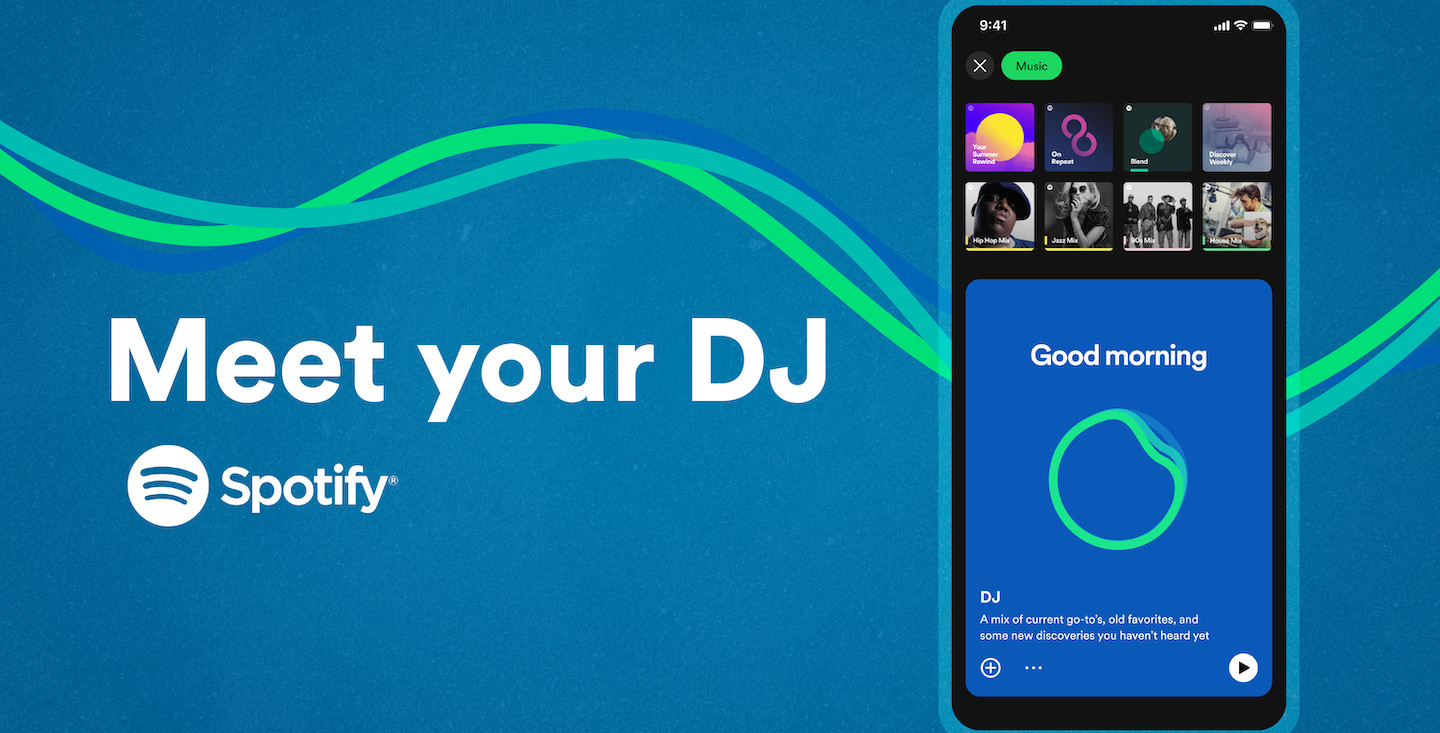
Spotify is the latest tech giant to weave artificial intelligence into its platform, with the company using it to give users their own personal DJ right in their pocket. The AI DJ announcement comes just weeks before Spotify’s upcoming Stream On event, where the company is expected to reveal a redesigned home feed with vertical swiping à la TikTok.
The music streaming app will use the new feature to provide each user with a more personalised selection of songs, which will be accompanied by AI-powered spoken commentary about the tracks and artists. The idea behind it is that you will give feedback to the DJ about what you like and don’t like, promising that its recommendations will keep improving as you use it more.

The generative AI used for the technology is provided by OpenAI, which is used by Spotify’s music editors to provide users with insightful facts about the music, artists, or genres fed to users. The company claims that the AI tooling allows their editors to “scale their innate knowledge in ways never before possible.”
As for the DJ’s “stunningly realistic voice”, it stems from the streaming giant’s acquisition of the AI voice platform Sonantic, which it purchased last year for EUR91 million (~RM428 million). The samples for the voice were provided by Spotify’s Head of Cultural Partnerships, Xavier “X” Jernigan, who served on the platform’s first morning show, The Get Up.

It says that X’s voice is the “first model” for the AI DJ, which could mean that the app will add more virtual DJs in the future. The feature is currently still in Beta and is only available for Premium users in the US and Canada, which can be found on the mobile app’s home feed on both iOS and Android.
Spotify isn’t the first company attempting to use AI to revamp its platform. Just recently, Microsoft added a ChatGPT-like AI to its Bing search engine, which followed Google announcing plans for a similar integration in the near future with its Bard AI.
(Source: Spotify)
The post Spotify Launches AI-Powered DJ For Curated Playlists With Commentary appeared first on Lowyat.NET.
0 Commentaires